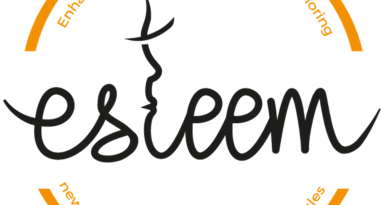Sustainable entrepreneurship and the Sustainable Development Goals
CEI researcher, Ana Margarida Esteves, has just published the article “Sustainable entrepreneurship and the Sustainable Development Goals: Community‐led initiatives, the social solidarity economy and commons ecologies” on the international peer-reviewed journal Business Strategy and the Environment.
The article was written in co-authorship with Audley Genus, Thomas Henfrey, Gil Penha-Lopes, and May East.
Abstract
The social solidarity economy is an approach to the production and consumption of goods, services and knowledge that promises to address contemporary economic, social and environmental crises more effectively than business as usual. The paper employs the concept of commons ecologies to examine the practices, relationships and interactions among actors and organisations in the social solidarity economy, as well as between them and the mainstream economy, which shape the field and its degree of autonomy in relation to capitalism, through a process defined as boundary commoning. Such process shapes both local and regional commons ecologies, as well as the participation of local and regional actors in wider networks at national, international and global levels.
The paper takes a case study‐based approach to identify practices, relationships and interactions of commons ecologies in relation to selected community‐led initiatives in the UK, Portugal, Brazil and Senegal. Each case study illuminates different qualities of local/regional commons ecologies and their forms of engagement with wider networks. Further, the paper shows that these cases demonstrate how the social solidarity economy may facilitate delivery of the Sustainable Development Goals in a distinctive way. In each case, SSE acts as a vehicle for expressing participants’ values and principles consistent with those underlying the SDGs. Local implementation of SDGs is thus an in‐built feature of these commons ecologies.
The participation of community‐led initiatives in international and global networks offers opportunities to learn from local level experiences and successes, potentially strengthening SDG implementation more generally.
You can access the article here.
Funding information: Institute of Small Business and Entrepreneurship, Grant/Award Number: RAKE2015‐01; Centro de Estudos Internacionais ISCTE‐IUL, Grant/Award Number: UID/CPO/03122/2013; Portuguese Fundação para a Ciência e a Tecnologia, Grant/Award Number: SFRH/BPD/94495/2013
![]() This work is licensed under a Creative Commons Attribution-NonCommercial-ShareAlike 4.0 International License.
This work is licensed under a Creative Commons Attribution-NonCommercial-ShareAlike 4.0 International License.




